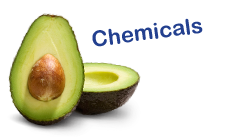Minerals
Iron is needed to carry oxygen and iodine to regulate metabolism. Low levels of either of these will result in tiredness, apathy, weakness, low energy, poor concentration, poor memory and irritability - the symptoms of anaemia.
Iron is found in many different foods including both animal and plant-based sources. Iron absorption is affected by our diet so minimise caffeine intake and increase vitamin C when eating plants high in iron or eat vegetables which are high in both (eg broccoli).
Iodine is well sourced from fish, but in countries where the soil is deficient eg. New Zealand, it is added to table salt. Commercially produced food uses non iodised salt, so where too much processed food is consumed iodine deficiency can result.
Zinc is important in a wide number of roles - energy, immunity, skin, vision, hearing, cell division to name a few. It also has the reputation of being the most deficient mineral in populations on a modern diet. Like iron, it is well sourced in meat and fish, but its absorption is hindered by phytates in wheat.
A recent study has found that tartrazine (102) a yellow food dye widely used in manufactured food and drink increases the loss of zinc.







